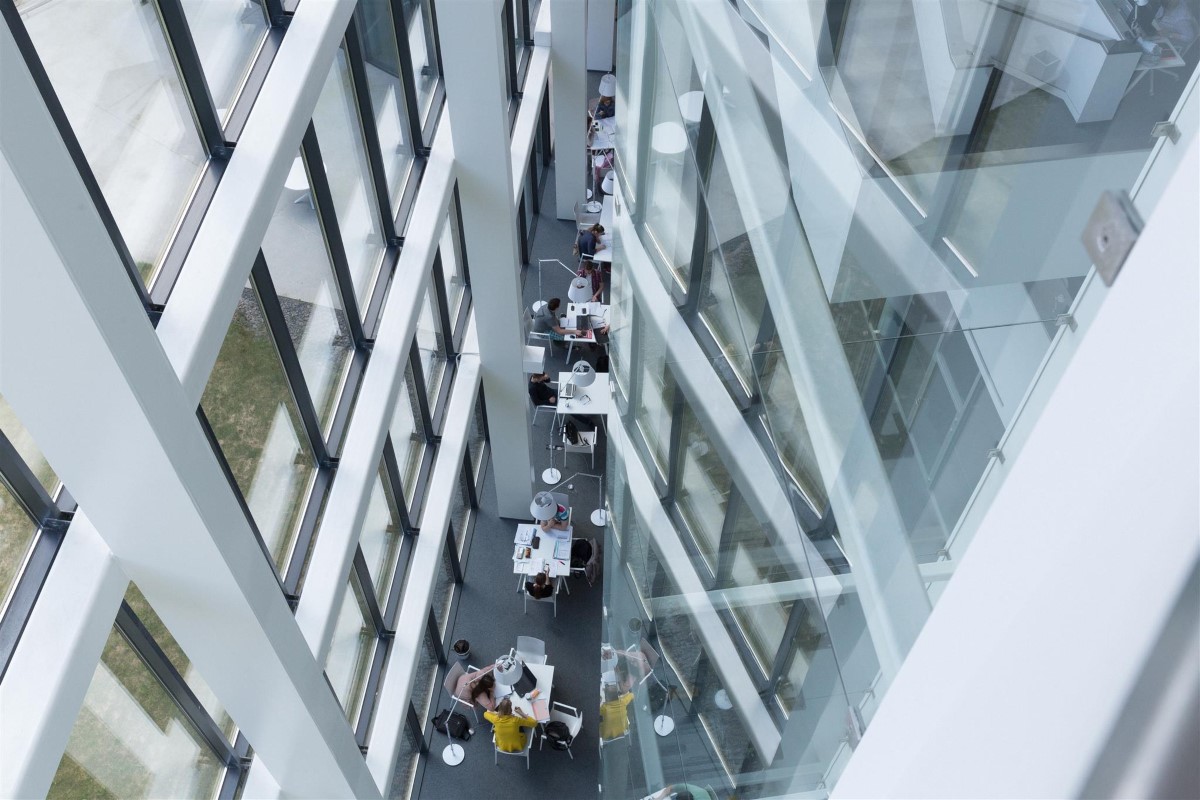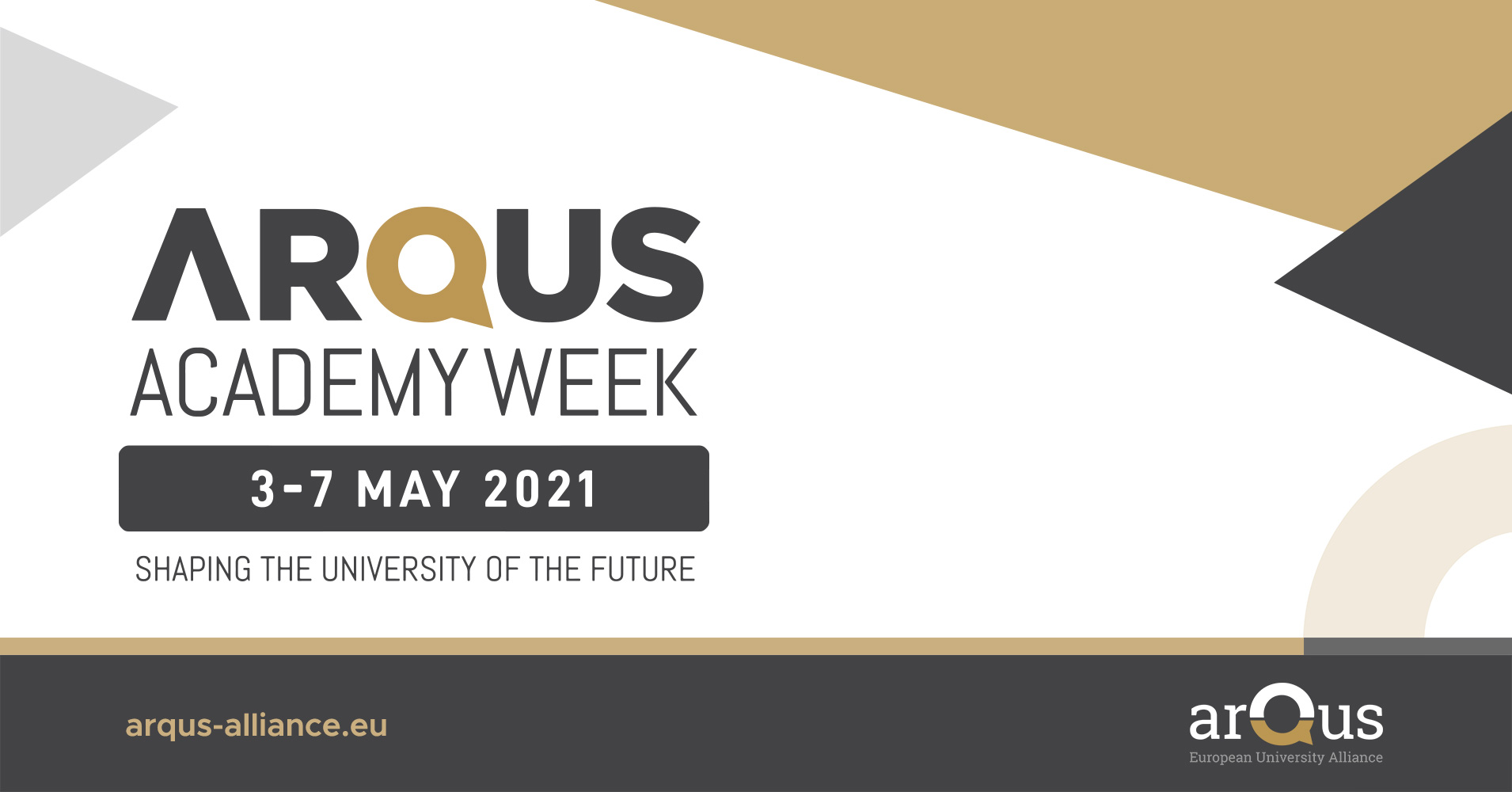Arqus Celebrates Its First Arqus Academy Week - a Series of Exchanges and Debates About the Universities of the Future
 From 3rd to 7th May 2021, Vilnius University (VU) hosts the Arqus Academy Week 2021, a week full of interesting discussions, lectures, workshops and other events organised by the Arqus European University Alliance.This first edition, with the motto of “shaping the university of the future”, aims to engage the communities of the seven universities in discussing a renewed vision for higher education.
From 3rd to 7th May 2021, Vilnius University (VU) hosts the Arqus Academy Week 2021, a week full of interesting discussions, lectures, workshops and other events organised by the Arqus European University Alliance.This first edition, with the motto of “shaping the university of the future”, aims to engage the communities of the seven universities in discussing a renewed vision for higher education.
The series of events will analyse questions related to the fundamental subject of “Shaping the university of the future”. This will allow participants to take a comprehensive look at the activities and changes of higher education schools. During the Arqus Academy Week, 20 events will be organised in 6 different sub-subjects which reflect the characteristics of the future university fostered by the partners of the Alliance: an inclusive university, a university of excellent teaching and learning, a multilingual university, an entrepreneurial university, an open science university and a globally engaged university.
“I believe that this Arqus Week will be an excellent opportunity for every member of the Arqus community to learn more about the Alliance and to understand why and how it is worth participating in its activities. It is also a chance to meet with representatives of all six other universities of the Alliance (this time, only virtually) and to discuss and share ideas on how to strengthen the Alliance and define its future profile,” Dr Artūras Vasiliauskas (the Pro-Rector for partnerships at VU) indicates.
The week will offer seminars, workshops, and discussions for lecturers, doctoral students, studies and education managers, specialists of international relations, students and the general public.
“The programme for this week contains a wide range of activities for different publics in our universities, covering a spectrum of issues of importance for the universities of the XXIst century. Matters such as inclusion, excellent innovative learning and teaching, citizen science and societal impact are all present and central to the transformation of our institutions.”, says Prof Dorothy Kelly (Coordinator of the Arqus Alliance and Vice-Rector for Internationalisation at the University of Granada).
The Week will start with a debate with representatives of the seven universities, which will be moderated by Dr Artūras Vasiliauskas. He will present activities of Arqus in view of the latest European developments in the area.
On the remaining days of the event, subjects such as student inclusion, women in education and distance learning will be discussed. Speakers of the Arqus Academy Week will discuss the quality of studies, development of programmes, multilingualism at university and challenges of teaching and learning, among others. Members of the community of the Arqus universities – researchers, scientists and specialists – will present the latest trends and will discuss the topics such as entrepreneurship, student exchange or citizen science in different discussions and debates.
Everyone wishing to participate in the activities of the Arqus Academy Week must register. For more information on the Week, programmes, speakers and subjects, go to https://www.arqus-alliance.eu/arqus-academy-week-2021.
The Arqus European University Alliance brings together the universities of Bergen, Granada, Graz, Leipzig, Lyon, Padova and Vilnius. Its principal ambition is to act jointly as a laboratory for institutional learning from which to move forward in the design, testing and implementation of an innovative model for deep inter-university cooperation.
Arqus aspires to build on the member universities’ sound prior experience in cooperation in order to achieve a high level of integration in its members’ policies and action plans in order to enhance the education of critically engaged European and global citizens who are able and willing to contribute to a multicultural, multilingual and inclusive Europe which is open to the world; increase and improve the joint research capacity of the partner universities; better respond to the grand societal challenges of the 21st century in Europe and beyond.
